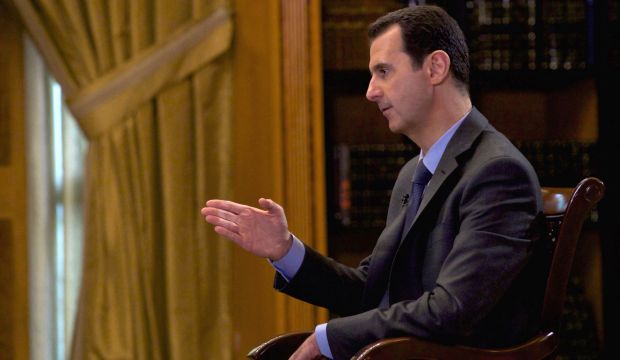I am surprised that people were surprised by the recent remarks made by the US Secretary of State John Kerry about the necessity to negotiate with the Syrian President Bashar Al-Assad as a means to guarantee a political transition and an end to the war in Syria. The remarks were not unexpected given several previous indications that we either ignored deliberately or did not want to believe. Over the past four years of the Syrian crisis, the Western strategy, particularly that of Washington, has remained ambiguous. No decisive intervention was made to topple the regime and end the tragedy that has afflicted Syria and its people. US President Barack Obama’s administration hesitated for a long time before providing military support, despite insistence from friendly nations and appeals from the Syrian opposition.
When the Islamic State of Iraq and Syria (ISIS) joined the fray in Syria, positions started to become clearer, at least in Washington where it was announced that the Obama administration had decided to make fighting ISIS its priority while postponing consideration of the future of Assad’s regime. The Obama administration remained silent on the need for Assad and his regime to step down—an assertion it had made early in the crisis but that was never translated on the ground—as things took a different tack towards reaching an indirect “understanding” with Damascus against ISIS. It was obvious that airstrikes by the US-led international coalition on ISIS positions would also reduce pressures on Syrian government forces. It was claimed that the aerial campaign would help government forces step up attacks on ISIS positions and other extremist Islamist groups. At the time the Syrian government cheered for the airstrikes, claiming that it was in the same trench with the US in the war on terrorism. The Syrian government, of course, makes no distinction between the factions fighting against it, lumping moderates and extremists together into one category: “terrorists”. Thus, it used the “détente” to increase barrel bomb attacks and retake several positions from the opposition while the international coalition’s planes launched airstrikes on ISIS positions.
The US strategy on Syria, it became clear later, has sparked off disputes within the Obama administration, leading to the resignation, or sacking, of Secretary of Defense Chuck Hagel. In a letter to the White House, Hagel criticized what he saw as ambiguity surrounding the Obama administration’s position towards the future of the Assad regime, calling for a clearer position and warning that procrastination and delaying the response to the Syrian crisis would cause damage to the US strategy of eliminating ISIS. This was of course another indication that Washington was considering the survival of the Assad regime as an option in a bid to prevent Syria from falling into ISIS’s hands.
This was not only Washington’s position. Other players in the West and think tanks close to decision-making circles adopted the same position. The leaking of “Steps to Settle the Syrian Conflict,” a report prepared by the Swiss-based Centre for Humanitarian Dialogue (HD), kicked up a storm in the West last November. The report concluded that the solution in the near future in Syria lies in keeping the Assad regime in power instead of risking the fall of the Syrian state into the hands of the “jihadists.” The conclusions reached by the report were not the usual ones in that they aimed at achieving calm in Syria in stages and in a region-by-region manner. This turned out to be exactly what the UN Envoy to Syria Staffan de Mistura would propose later. In his proposal to Assad, de Mistura called for achieving calm in stages starting with Aleppo. The plan drew much criticism given that it meant that the international community was beginning to believe that calm could be achieved through Assad and thus that he was considered as part of the efforts for a solution.
But is this the whole story?
Of course not. The Syrian crisis intersects with the Iran nuclear talks. A deal with Iran, it has been reported, would only be sealed if the US dismissed any thoughts of toppling Assad’s regime, Tehran’s main ally in the region. This is nothing new and it has been circulating for a while. It also suggests that the Obama administration thinks Iran should have a role in the “war on terror” whether in Syria or Iraq.
The region is sinking in a sea of shifting sands. I hope that we Arabs will wake up and stop criticizing the positions of the US or any other country. Every country has the right to work for its own interests. Arab states should stop being dependent on others, bear their own responsibilities and protect their interests. The shifts in the Syrian crisis serve as a model for several variables taking place in the region that require new strategies aimed at shaking off policies of infighting and skepticism and at beginning to rebuild the decaying body that is the Arab world. This new strategy should begin by forming a bloc of those Arab states wanting to deal with the imminent risks.
